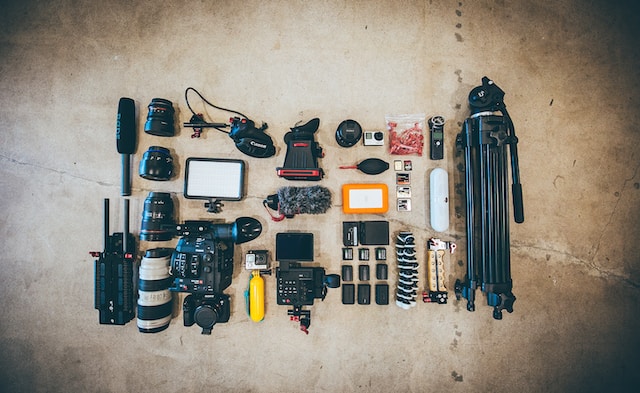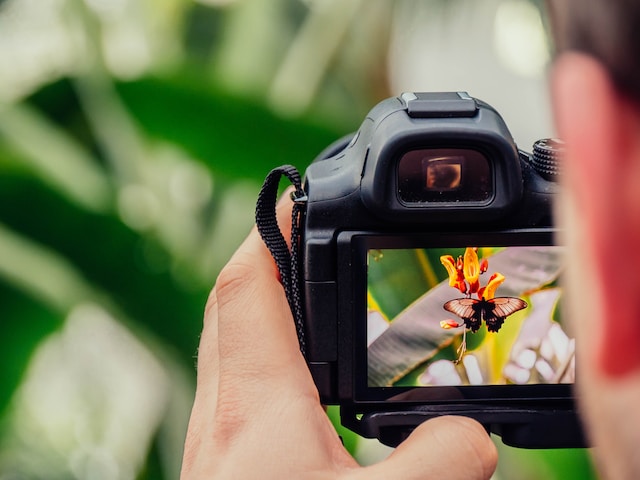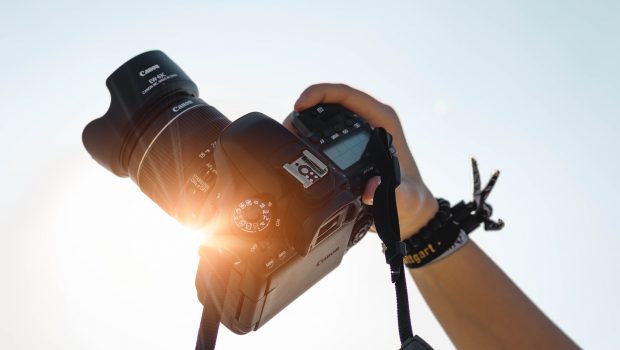Photography is a captivating art form that allows you to capture moments and tell stories through images. Whether you’re passionate about landscapes, portraits, events, or wildlife, starting a career as a photographer can be an exciting and rewarding journey. This guide will take you through the steps to kickstart your photography career, from selecting the right equipment to building your portfolio and finding clients. Let’s dive in!
Choosing the Right Equipment

Before you embark on your photography career, you need to select the right equipment. Your gear plays a crucial role in shaping the quality of your work. Here are some essential items to consider:
Camera Selection
Your camera is your most important tool. Invest in a high-quality DSLR or mirrorless camera to get started. Consider factors like megapixels, sensor size, and brand reputation.
Lens Choices
Lenses allow you to achieve different perspectives and styles. Start with a standard zoom lens for versatility and expand your collection as you grow. Consider prime lenses for more specialized work, such as portraits or low-light photography.
Supporting Equipment
A sturdy tripod is invaluable for achieving stability in low light or long exposure situations. Look for one that suits your photography style. Additionally, consider accessories like filters, lens hoods, and a reliable camera bag to protect and transport your equipment.
Lighting Tools
Good lighting is key to great photography. Learn to work with natural light, but also invest in external flashes or studio lighting for more control, especially in challenging lighting conditions. Familiarize yourself with light modifiers like softboxes and reflectors to shape light effectively.
Post-Processing Software
Post-processing is a significant part of photography. Get familiar with tools like Adobe Photoshop or Lightroom to enhance your images. Consider learning other software or plugins that can help you achieve specific effects or retouching tasks.
Developing Your Skills
Now that you have the right equipment, it’s essential to develop your photography skills. Here’s how you can do it:
Study and Practice

Photography is a skill that improves with practice. Study the basics of exposure, composition, and lighting. Experiment with different techniques and subjects to enhance your skills. Seek out online tutorials, books, and courses to learn new techniques and gain inspiration.
Take Courses and Workshops
Consider enrolling in photography courses, either online or at a local institution. Courses can provide structured learning and valuable feedback from experienced instructors. Attend workshops and seminars led by seasoned photographers to gain real-world insights and network with other enthusiasts.
Learn from Others
Connect with other photographers, both online and in your local community. Engaging with a community of photographers can provide valuable insights and inspiration. Join photography clubs or forums to share your work and receive constructive critiques.
Create a Personal Project
Start a personal project that allows you to focus on a specific subject or style. It’s an excellent way to apply what you’ve learned and build a unique portfolio. Personal projects also keep your creativity flowing and showcase your evolving skills to potential clients.
Building Your Portfolio
Your portfolio is your visual resume as a photographer. It showcases your best work and helps you attract potential clients. Here’s how to build an impressive portfolio:
Select Your Best Shots
Choose a selection of your best photographs that demonstrate your skills and style. Quality matters more than quantity. Regularly update your portfolio to reflect your latest and best work.
Variety is Key

Include a variety of subjects and styles to showcase your versatility. Potential clients want to see your range as a photographer. From portraits to landscapes, events to macro photography, demonstrate your ability to handle diverse assignments.
Create a Professional Website
Build a professional website to display your portfolio. You can use website builders or hire a web developer for a more customized look. Ensure that your website is user-friendly, showcases your work beautifully, and includes an easy way for clients to contact you.
Finding Your Niche
As you develop your photography skills and build your portfolio, consider finding your niche. Specializing in a particular type of photography can set you apart and attract a dedicated client base. Here are some popular niches to consider:
Portrait Photography: Capturing people’s expressions and emotions can be incredibly rewarding. Portrait photography includes headshots, family portraits, and lifestyle photography. Develop a unique style that helps clients connect with your work emotionally.
Landscape Photography: If you have a love for the great outdoors, landscape photography can be your niche. It involves capturing the beauty of natural landscapes, from mountains to seascapes. Master the art of composition and capturing the ever-changing moods of nature.
Event Photography: Events like weddings, parties, and corporate gatherings require skilled photographers to capture the moments. Event photography can be lucrative and exciting, but it demands a strong sense of timing and the ability to work in dynamic environments.
Pricing Your Services

Setting the right pricing for your photography services can be a challenging task. You want to be competitive while ensuring that your work is valued appropriately. Here’s how to approach pricing:
Research the Market: Research what other photographers in your area are charging for similar services. This will give you a baseline for your pricing structure. Take into account the average rates, but also consider your skills, experience, and the unique value you bring to the table.
Factor in Costs: Consider your equipment, editing software, website hosting, and marketing expenses. Your pricing should cover your costs and leave room for profit. Be transparent with clients about any additional costs they might incur, such as travel expenses for destination shoots or the cost of prints and albums.
Value Your Time: Your time and expertise are valuable. Don’t underprice your services, as it can undermine your credibility as a professional photographer. Clearly communicate the amount of time you’ll invest in a project and the value of your experience and skills.
Create Packages: Offer different packages to cater to a variety of clients. Include options for prints, digital files, and albums to give clients choices. Tailor your packages to suit different budgets and needs, and clearly outline what each package includes.
Finding Your First Clients

Securing your first clients can be a challenging but crucial step in your photography career. Here’s how to get started:
Offer Discounts and Specials
To build your client base, consider offering discounts or special promotions for your first few clients. This can entice people to give your services a try. As your portfolio grows and you gain more experience, gradually adjust your pricing to reflect your expertise.
Tap into Your Network
Ask friends and family to spread the word about your photography business. You never know who might know someone in need of your services. Leverage personal connections to get your first clients and ask them to leave reviews or testimonials on your website or social media.
Online Listings
List your photography business on online directories and platforms like Yelp, Google My Business, and Facebook. Positive reviews can boost your visibility and credibility. Encourage satisfied clients to share their experiences and leave reviews. Or you can find photography jobs from job posting platforms like https://worki.mn/ to get some experience.
Attend Events and Workshops
Attend local events and gatherings, especially if they relate to your niche. You can capture moments and promote your services to potential clients in attendance. Consider volunteering your services at local events to gain experience and exposure.
Conclusion
Starting a career as a photographer is an exciting journey that requires dedication, creativity, and business acumen. By choosing the right equipment, honing your skills, building a strong portfolio, finding your niche, and marketing your services effectively, you can turn your passion for photography into a fulfilling and profitable career. Remember that success in photography often comes from a combination of talent and hard work, so stay persistent and keep capturing those memorable moments. Your photography career is just a snapshot away!

